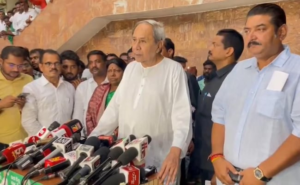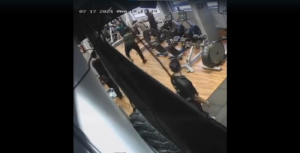

Chief Justice of India DY Chandrachud at an event organised by the Supreme Court Bar Association
New Delhi:
Legal power is not enough for a judge for whom the stronger tool is their desire to understand human life and people’s problems, Chief Justice of India DY Chandrachud said on Wednesday at an event organised by the Supreme Court Bar Association (SCBA).
Newly-appointed judges Justices Satish Chandra Sharma, Augustine George Masih, Sandeep Mehta, and Prasanna B Varale were welcomed at the event. Chief Justice Chandrachud said that with their elevation, the Supreme Court is once again working at its maximum mandated strength of 34 judges.
Chief Justice Chandrachud also recited lines from a ghazal by the legendary Jagjit Singh.
“I would like to welcome them to the Supreme Court. In what has come to become my tradition for events at the bar, I would like to conclude, Tere aane ki jab khabar mehke, teri khushbu se saara ghar mehke,” he said.
More importantly, the Supreme Court will benefit from the diversity of their experience, he added.
“I believe decision-making is somewhat like, to borrow the words of scholar Catharine Wells, ‘riding a bicycle’. ‘If you are teetering out of control, it is unlikely that a complicated theory will help to restore the balance’. In the moments of imbalance, we are unlikely to find solutions in very complicated theoretical statements of the law or policy,” Chief Justice Chandrachud said.
“The stabilising influence in such moments of crisis is often a very simple idea of justice. The strength of a simple idea lies in the fact that it comes from the vast experience of a judge – as a lawyer, as a student of the law and as a discerning observing member of this society. Legal power is not enough for a judge. The stronger tool is their desire to understand human life,” the Chief Justice said.
“The journeys of Justice Sharma, Justice Masih, Justice Mehta, and Justice Varale demonstrate their commitment to understanding human life and to improving it with the help of our laws,” he said.
He said there is a vast body of literature on how judges must decide and what goes into legal decision-making in general.
“While the knowledge of the law and the context of its enactments are important, it is, ultimately, the understanding of people’s problems that makes us better lawyers and judges,” he said.
Justice Sharma said his elevation to the Supreme Court was the highest honour for him. “This is a dream come true. To serve in the top court of the land is unarguably the highest honour for any person in the legal profession,” he said.
Justice Masih said legal profession is an area where, if one works hard, one can achieve what one wants and talent and efforts will be recognised.
“There’s always chance of you moving up. We always hear so much about who has been elevated to the bench. But here’s a person standing in front of you who had no connection with law and is a first-generation lawyer,” Justice Masih said.
Justice Mehta thanked the senior judges with whom he has sat as a part of a bench so far. “They have guided me in the nitty-gritty in an entirely new work environment, helping me overcome challenges, which is really quite daunting.”
Justice Varale described the Bar and Bench as the two wheels of the chariot of justice.
Attorney General R Venkataramani said that during Chief Justice Chandrachud’s tenure, 15-16 judges have been appointed to the Supreme Court.
SCBA president Adish C Aggarwala praised the Supreme Court collegium for picking talented judges.



